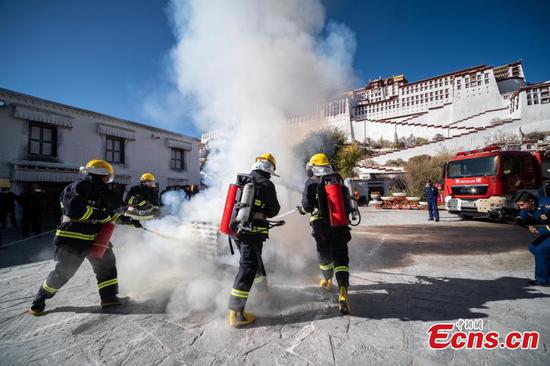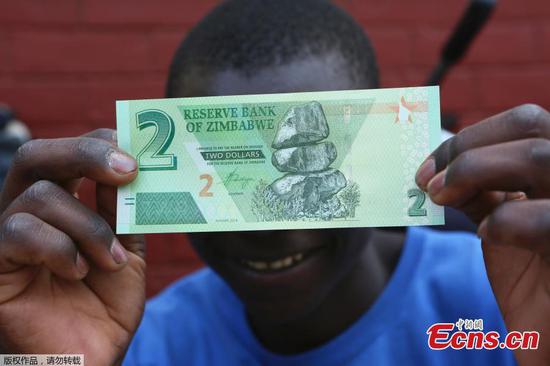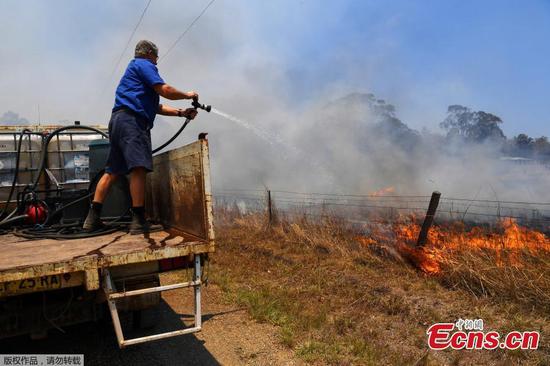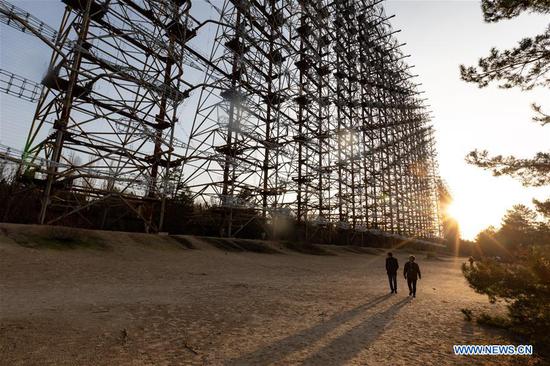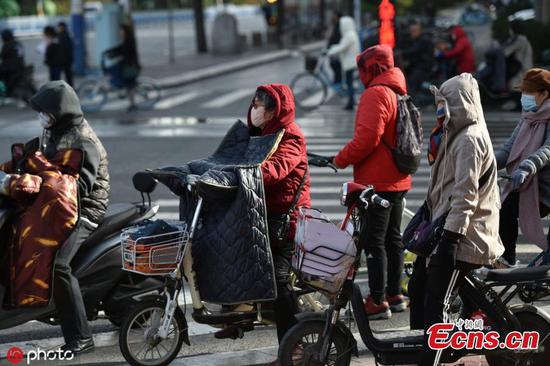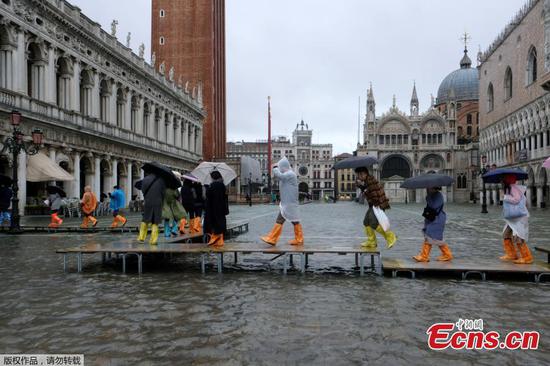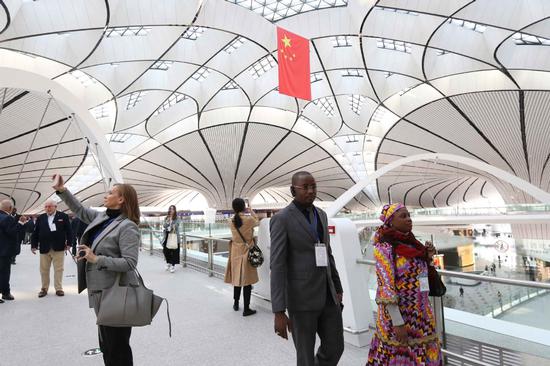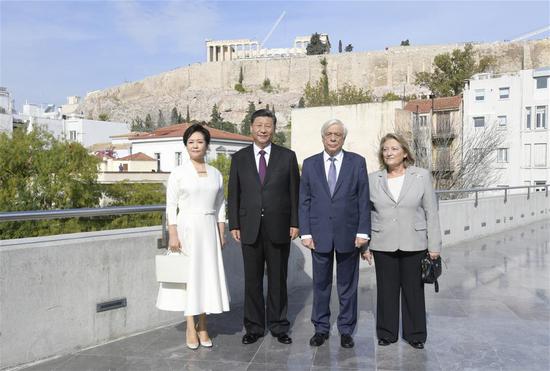
A police officer shows scenes of protesters indulging in violence in Hong Kong at a press conference on Wednesday. Police said when mobs attack the police and throw bricks and gasoline bombs at them, they have no choice but to respond and stop such incidents. (Photo/Xinhua)
1.21 million residents sign online petition seeking strict action against radicals to curb unrest in HK
A series of attacks on ordinary residents in Hong Kong, including an arson attack on a senior citizen on Monday, has sparked public outrage at radical protesters who vented their ire on people not agreeing with their actions.
As of Thursday noon, more than 1.21 million Hong Kong residents had signed an online petition calling for more rigorous law enforcement to curb the escalating violence.
The most shocking incident since the protests broke out in June over the now-withdrawn extradition bill saw a 57-year-old man being set ablaze by a black-clad man following an argument over political disputes.
Safeguard Hong Kong, a civic alliance consisting of lawyers, teachers, social workers and business people, gathered tens of thousands of posts via the petition in support of the beleaguered police force.
"It's a clear message from Hong Kong people-we've had enough of black violence," said Kennedy Wong Ying-ho, convener of the alliance, two days after he submitted the petition to the Hong Kong chief executive's office.
"It is so ironic that those protesters, who claim to fight for democracy and freedom, are so intolerant of anyone with different views," Wong said, citing the arson attack.
The online petition gives voice to Hong Kong's silent majority worried about personal safety when speaking out against rioters, he said.
A 35-year-old businessman, surnamed Chow, said it was not until the moment he saw the man burned on the street of his neighborhood that he decided to comment on his social media page.
"I stayed silent when they blocked roads and damaged shops," he said. "But when I saw ordinary people being repeatedly targeted, I knew we would soon be forced into silence forever if we do not speak out now."
The Hong Kong Police Force should be better empowered and protected by laws, especially when they are outnumbered, under considerable strain, and not much better equipped than some of the protesters, said Wong.
Thousands of residents petitioned the government, urging it to use all legal means other than "strongest condemnations". This includes invoking the Emergency Regulations Ordinance again to quell the violence.
There have been more arrests and more prosecutions since the anti-mask law took effect. It gives the police one small advantage, though rioters continue to defy the law, said Wong, adding that curfew could be an option to contain the runaway violence.
However, the shortage of law enforcement staff undermines the effectiveness of the law and injunction orders such as a ban on releasing personal details of police officers and their families, he said.
Despite mounting calls for harsher punishments by the courts to deter radicals, Wong said judicial independence remains one of Hong Kong's core values, while the government should appeal against the sentences as current punishments are widely regarded as "too light".
In light of the "black terror" and the strained police force, he called for the upcoming District Council elections to be rescheduled, saying there can be no fair polls if voters and candidates are exposed to threats and assaults.
Referring to the murder attempt on lawmaker Junius Ho Kwan-yiu, who was stabbed in the chest during his campaign, Wong said the government should postpone it until law and order is restored.
About two-thirds of the 287 arrested on Monday were students, according to the police. This week, university campuses have become the main battleground where the police confronted masked protesters who vandalized property.
Describing the escalating violence as "very alarming", Wong said deficiencies in legal education had contributed to the problem, as the city's fundamental principle of the rule of law had been overturned.
Recalling his secondary school days in the United Kingdom where he had to write law exams, he suggested that youngsters be better educated about the penalties they might face if they break the law.
Reviewing education is one thing; on the other hand, you need to show them how a punishment will affect them, he said.















